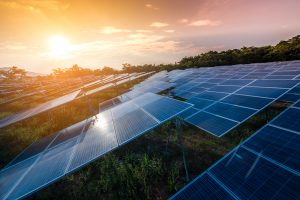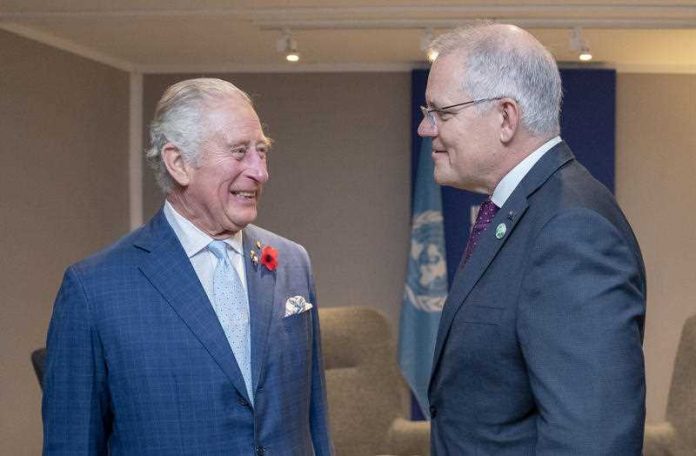Australia will play a global role in helping other countries reduce their emissions and better prepare for disasters.
That’s the message Prime Minister Scott Morrison and Energy Minister Angus Taylor aimed to leave with leaders as they prepared to exit the COP26 climate talks in Glasgow.
However, Labor says the government went to the conference with a pre-election political deal cobbled together with the Nationals and left having had nothing new or ambitious to say to the world.
Mr Taylor used the summit to unveil the second of the government’s low emissions technology statements, following the inaugural statement in September 2020.
The technology plan and emissions reduction fund are the two pillars behind Australia’s recent pledge to get to net-zero emissions by 2050.
Mr Taylor noted Australia was willing and able to share emissions-reducing technology to enable the world to reach the 2050 goal.
“Getting costs down to parity is essential to unlocking widespread, global deployment (of solar, batteries and hydrogen),” Mr Taylor said.
Ultra-low cost solar — generating electricity at $15 per megawatt-hour — would be one of the six priority technologies under the enhanced plan.
The government has also identified the timeframes under which parity with existing technologies would be reached for the six priority technologies.
And it will support the greater use of technologies like electric vehicles.

Like stories that inform, connect and celebrate the Sunshine Coast? So do we. Join an independent local news revolution by subscribing to our free daily news feed: Go to SUBSCRIBE at top of this article to register
Mr Morrison on Tuesday joined in an announcement alongside the UK and India of a new financing arrangement to help small island developing states prepare for disasters.
The Infrastructure for Resilient Island States platform is expected to be joined by other countries to boost spending on infrastructure that can withstand disasters and lessen economic losses in island nations.
“For the Pacific island nations, this is a very practical reality for them,” Mr Morrison said.
Worsening disasters are putting the existence and economies of small island states at risk.
The Asian Development Bank and Inter-American Development Bank has estimated the infrastructure investment deficit across the Pacific and Caribbean at almost $120 billion to 2040.
Australia also joined with 104 other countries in signing a leaders’ declaration on forests and land use.
“(We) reaffirm our respective commitments to sustainable land use, and to the conservation, protection, sustainable management and restoration of forests, and other terrestrial ecosystems,” the statement said.
“We commit to working collectively to halt and reverse forest loss and land degradation by 2030 while delivering sustainable development and promoting an inclusive rural transformation.”
Labor leader Anthony Albanese said he remained hopeful the conference, which ends on November 12, emerged with a “positive outcome”.
However, he said Australia was trailing the rest of the world when it comes to clean energy because the prime minister had overseen a “decade of denial” in terms of climate action.
Greens leader Adam Bandt said the failure to commit to phasing out coal and gas would sabotage global action on climate change.
“Money won’t help a Pacific that is drowning because Scott Morrison and Labor want more coal and gas,” he said.





